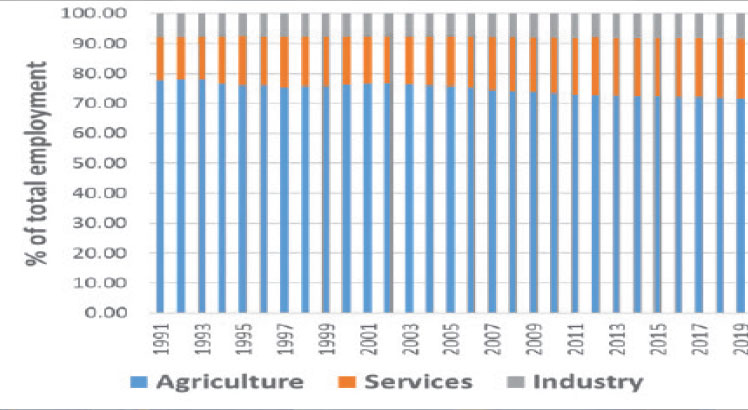Finance gap threatens Industrialisation goals
University of Malawi associate professor of economics Ronald Mangani says financing gaps threaten the country’s aspirations of achieving industrialisation and transformation.
In his presentation at the 2021 Institute of Chartered Accountants in Malawi (Icam) Annual Lakeshore Conference in Mangochi on Friday, Mangani, who is also former Secretary to the Treasury, said Malawi’s annual total financing requirement is estimated at 25.6 percent or $2.8 billion (about K2.3 trillion) of the gross domestic product (GDP).
Malawi’s norminal GDP after rebasing is at $10.9 billion (about K8.9 trillion).

Said Mangani: “It is currently not feasible for the economy to realise this level of financing and every day that passes without duly addressing economic growth concerns is costly and disastrous.
“Government intervention is critical for industrialisation and transformation.”
He said that before privatisation, government had 121 commercial State-owned enterprises (SOEs) or semi SOEs, but by 2002, 53 SOEs were privatised.
As of the 2019/20 financial year, Treasury figures show that government had 28 commercial public enterprises.
Between 1960 and 2019, the share of industry to the GDP has shrunk from 13.3 percent in 1960 to 39.2 percent in 1990 and to 20.1 percent in 2019.
During the same period, services industry contribution has moved 38.2 percent in 1960 to 22.3 percent in 1990 and 54.4 percent in 2019 while agriculture industry contribution to the GDP has moved from 48.4 percent in 1960 t0 38.5 percent in 1990 to 25.5 percent in 2019.
To date, industry’s contribution to employment stands at eight percent as compared to 72 percent for agriculture and 20 percent for services.
“By the 1960-1992 trend, industry should be contributing upwards of 60 percent to GDP.
“The privatisation agenda is a miserable flop only transferred assets into private hands for a song! Government risks huge challenges to meet future commitments with the private sector,” said Mangani.
In her remarks, Icam president Phyles Tatha Makumba said Malawi needs homegrown policies that will be embraced by the people as well as supporting the Malawi 2063 (MW2063), the country’s long-term development blueprint.
In his keynote address, Vice-President Saulos Chilima said the MW2063, which centres on wealth creation, has three main pillars, namely agriculture productivity and commercialisation, industrialisation (with mining as an important integral component) and urbanisation (with development of tourism hubs as a key component).
He said: “It is incumbent upon us, as accountants and as Malawians, to work extremely hard and smarter to realise an inclusively wealthy and self-reliant industrialised upper-middle income economy by 2063.”
The conference, which started on Thursday, ended on Saturday at Sun ‘N’ Sand Holiday Resort in Mangochi and was held under the theme Navigating Through The Rough Economic Terrain: Moving Forward Regardless of the Challenges.





